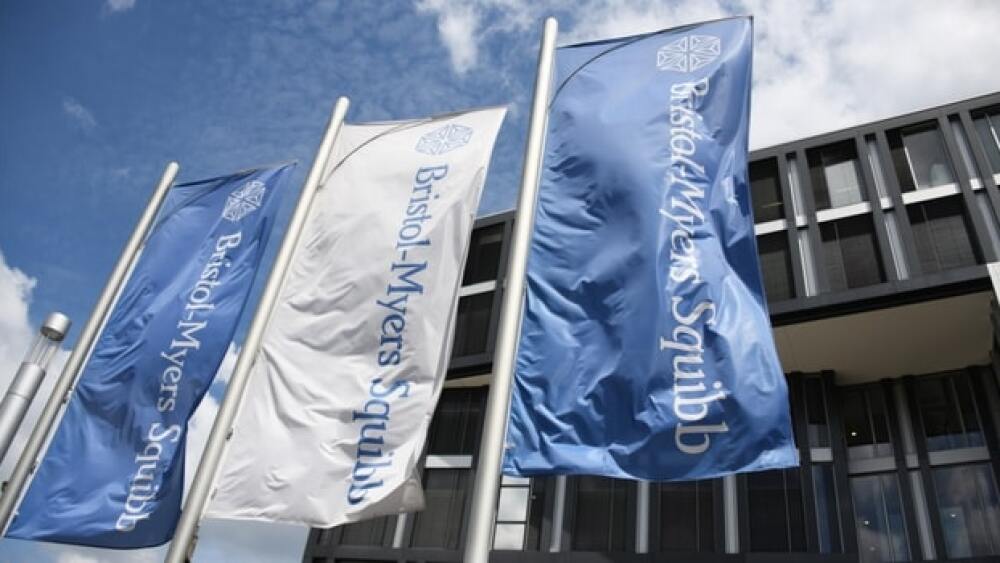The company’s head of drug development, Samit Hirawat, told analysts in a conference call last week that the decision was about working with the best drugs, particularly in a crowded field like BCMA.
nitpicker/Shutterstock
Earlier this week, the U.S. Food and Drug Administration (FDA) approved Bristol Myers Squibb’s Breyanzi (lisocabtagene maraleucel; liso-cel) for adults with relapsed or refractory (r/r) large B-cell lymphoma (LBCL) after two or more lines of systemic therapy. Liso-cel is a CD-19 directed chimeric antigen receptor (CAR) T cell therapy.
The company also has a PDUFA date of March 31, 2021, for its Biologics License Application (BLA) for ide-cel, a B-cell maturation antigen (BCMA)-directed CAR-T therapy.
So it comes as a little bit of a surprise when Bristol Myers Squibb reported it was abandoning a second BCMA CAR-T therapy, orva-cel, and taking a $470 million write-off. Orva-cel was developed originally by Juno Therapeutics, which Celgene acquired for $9 billion before Celegene was acquired by Bristol Myers Squibb for $74 billion in late 2019.
The company’s head of drug development, Samit Hirawat, told analysts in a conference call last week that the decision was about working with the best drugs, particularly in a crowded field like BCMA.
“We have ide-cel as a frontrunner, which has the data and has been submitted for review and approval, both in the U.S. as well as in EU,” Hirawat said. “When we look at the orva-cel evolution of the data and we put it in terms of the landscape and the evolution of data from outside as well, we believe that ide-cel fits perfectly in terms of further development. And orva-cel’s platform becomes very important for the next generation of CAR cell development rather than that particular medicine itself. So, therefore, we have not taken orva-cel forward as in the current form and would use the platform for evolution of the cell therapies.”
Orva-cel, which is short for orvacabtagene autoleucel, was being evaluated in a Phase I/II EVOLVE trial in mid-2020 to investigate differing dose ranges of CAR-T cells in patients with relapsed/refractory multiple myeloma (RRMM). Earlier studies for lower doses demonstrated an acceptable safety profile and promising clinical behavior.
At the time, Sham Mailankody, medical oncologist at Memorial Sloan Kettering Cancer Center, told Helio, “BCMA has emerged as a promising treatment target in myeloma, and orva-cel is a novel CAR T-cell therapy with an optimized manufacturing process that enriches for a central memory phenotype and could lead to more persistent, and hopefully more effective, treatment in this setting. Initial data from the ongoing EVOLVE study have demonstrated promising efficacy with orva-cel treatment in patients with relapsed or refractory multiple myeloma.”
Liso-cel was approved under the brand name Breyanzi. CAR T therapies like Breyanzi are living therapies, where T cells are taken from the patient, engineered in a lab to specifically target the patient’s cancer cells, then reinfused into the patient, where they grow and attack the cancer. It plans a 24-hour target turnaround time, with inpatient or outpatient administration options. It plans to launch the therapy at a wide network of treatment centers that will be Risk Evaluation and Mitigation Strategy (REMS) certified. Cytokine release syndrome (CRS) is common, as are neurologic toxicities, which is why the clinics providing the treatments with be REMS certified so they have training in dealing with the potentially lethal side effects.
On December 31, 2020, a $9 Celgene Contingent Value Rights (CVR) payout deadline passed. It was one of three required milestones for the CVR. Bristol Myers Squibb said at that time that the CVRs were then terminated, so no longer eligible for payment and no longer allowed to trade on the New York Stock Exchange. There were about 715 million CVR notes in circulation. If the three milestones had been met, the notes would have paid out $6.4 billion to investors.
The CVR was based on FDA approval of three drugs, Zeposia, ide-cel and liso-cel. Ceposia (ozanimod), for multiple sclerosis, was approved in March 2020. The FDA accepted the Biologics License Application for ide-cel, a B-cell maturation antigen (BCMA)-directed CAR T therapy in September 2019, with a target action deadline of March 31, 2021.
Liso-celo was originally scheduled for approval by November 16, 2020, but the pandemic blew the schedule to pieces. In November 2020, Bristol Myers Squibb indicated that the COVID-19 pandemic delayed travel for FDA inspectors who were scheduled to inspect a third-party manufacturing plant in Texas before the target action date. But this they couldn’t, potential approval of liso-cel was delayed until the inspection could be completed.





